Understanding Free Flap Reconstruction of the Oral Cavity
Free flap reconstruction of the oral cavity is a complex surgical procedure used to restore tissue lost due to trauma, cancer, or congenital defects. It involves taking tissue from one part of the body and transplanting it to the oral cavity, creating a functional and aesthetic restoration. This procedure plays a vital role in rebuilding essential oral functions such as eating, speaking, and swallowing. However, recovery after such a surgery requires careful management, especially when it comes to diet. One of the most common questions patients have is: when can I safely resume my diet after the surgery?
1. The Healing Process After Free Flap Reconstruction
The healing process after free flap reconstruction typically takes several weeks to months, depending on the complexity of the surgery and the individual’s health. Immediately after the procedure, the patient may need to avoid solid foods and stick to a liquid or soft food diet. This is to allow the surgical site to heal properly, reducing the risk of infection and complications. During this time, the patient will likely be closely monitored by healthcare providers to ensure that the grafts are integrating well into the oral cavity and that no signs of rejection occur.
2. The Importance of a Modified Diet During Recovery
In the early stages of recovery, a soft or liquid diet is crucial. This helps avoid stress on the surgical site, allowing the free flap to properly heal and integrate with the surrounding tissues. Foods that are too hard, crunchy, or acidic can irritate the sensitive area and disrupt healing. Additionally, avoiding hot or spicy foods is essential to prevent further irritation. The goal during this period is to ensure that the patient receives adequate nutrition without risking injury to the new tissue.
3. When Is It Safe to Resume Solid Foods?
Resuming a normal diet depends on the healing progress and the patient’s individual circumstances. Typically, patients can begin to introduce soft solid foods into their diet within 3-4 weeks post-surgery, but this should only be done under the supervision of a healthcare provider. As the flap becomes more stable, patients can gradually transition to harder foods. However, it’s essential to listen to the body and avoid foods that cause discomfort or pain. A full recovery may take several months, and patients should work closely with their medical team to ensure that the healing process is on track.
4. The Role of Nutritional Support During Recovery
During the recovery period, proper nutrition is essential to promote healing and prevent complications. Patients recovering from free flap reconstruction need a balanced diet that includes protein, vitamins, and minerals to support tissue regeneration. Foods rich in vitamin C, such as citrus fruits and leafy greens, help with collagen formation, which is crucial for healing. Protein is important for tissue repair, so foods like eggs, lean meats, tofu, and legumes should be included in the diet. Hydration is equally important, and patients should ensure they are drinking plenty of fluids throughout their recovery.
5. Risks of Early Reintroduction of Solid Foods
While it may be tempting to return to a normal diet as soon as possible, doing so too early can cause setbacks in the healing process. Introducing solid foods before the flap has fully healed can lead to complications such as infection, delayed healing, or even damage to the graft. It's important to follow the dietary restrictions recommended by the surgeon or dietitian to ensure the best possible outcome. Patients should avoid foods that could irritate the mouth, such as extremely hot drinks, spicy foods, and crunchy or hard snacks, for the first few weeks after surgery.
6. Working with Your Medical Team to Monitor Progress
Every patient’s recovery journey is unique, and it’s essential to work closely with your healthcare provider to monitor your progress. Regular follow-up appointments will allow the surgeon to assess the healing of the oral cavity and determine the appropriate time to gradually increase the diet. Your medical team can provide personalized advice on how to reintroduce different foods and ensure that any complications are caught early. Patients should also report any unusual symptoms, such as excessive pain, swelling, or signs of infection, to their healthcare provider immediately.
7. Long-Term Diet Considerations for Oral Cavity Health
Even after the initial recovery period, maintaining good oral hygiene and a healthy diet is crucial for long-term oral cavity health. Patients who have undergone free flap reconstruction may need to continue avoiding certain foods that could cause harm to the surgical site or overall oral health. Regular dental checkups and hygiene practices, such as brushing and flossing, are important for preventing infections and maintaining the function of the reconstructed tissue. Additionally, a balanced diet that supports oral and overall health should remain a priority.

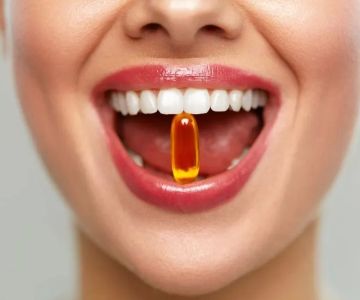

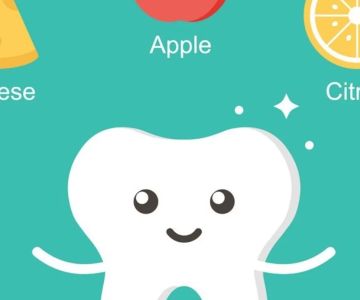

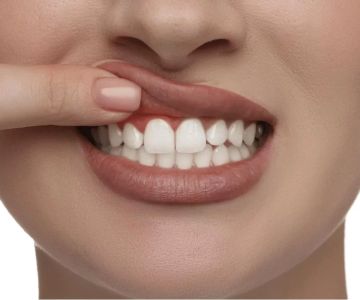

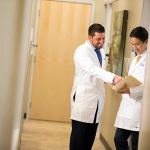 Aspen Dental - Oswego, IL4.0 (176 review)
Aspen Dental - Oswego, IL4.0 (176 review) Rittenhouse Dental Group4.0 (91 review)
Rittenhouse Dental Group4.0 (91 review) Dental Dreams - Cottman3.0 (1666 review)
Dental Dreams - Cottman3.0 (1666 review) Dental Care of Brooklyn Park4.0 (183 review)
Dental Care of Brooklyn Park4.0 (183 review)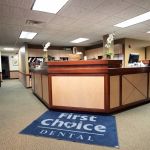 First Choice Dental- Madison Campus4.0 (184 review)
First Choice Dental- Madison Campus4.0 (184 review)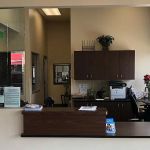 Bright Now! Dental & Orthodontics4.0 (340 review)
Bright Now! Dental & Orthodontics4.0 (340 review) The Importance of Oral Health Education During Pregnancy for a Healthy Pregnancy
The Importance of Oral Health Education During Pregnancy for a Healthy Pregnancy Best Tips for Brushing Your Teeth Properly for Healthy Gums: Essential Techniques for Oral Health
Best Tips for Brushing Your Teeth Properly for Healthy Gums: Essential Techniques for Oral Health Why Skipping Dental Checkups Can Lead to Bigger Oral Health Problems
Why Skipping Dental Checkups Can Lead to Bigger Oral Health Problems Advantages of Porcelain Dental Restorations
Advantages of Porcelain Dental Restorations How Can Diabetes Cause Tooth and Gum Problems? Preventing and Managing Oral Health Issues
How Can Diabetes Cause Tooth and Gum Problems? Preventing and Managing Oral Health Issues Healthy Habits for Promoting Good Oral Health and Hygiene: Tips for a Healthy Smile
Healthy Habits for Promoting Good Oral Health and Hygiene: Tips for a Healthy Smile